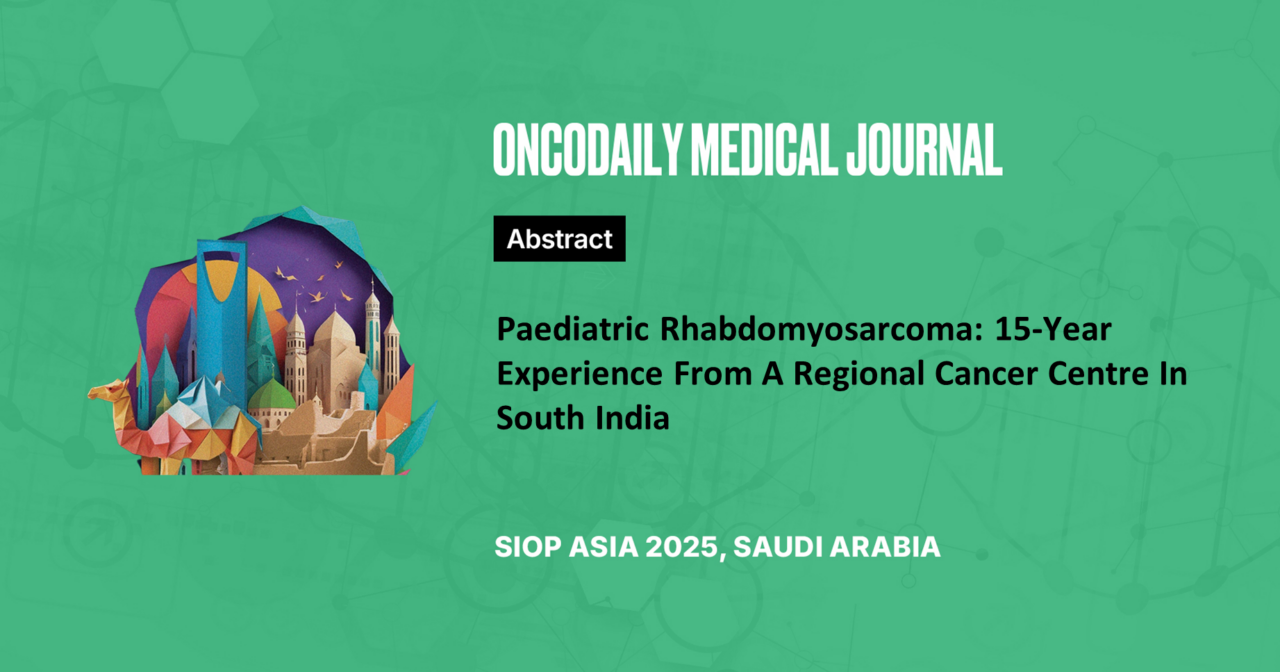Paediatric Rhabdomyosarcoma: 15-Year Experience From A Regional Cancer Centre In South India
Abstract
Introduction: Paediatric rhabdomyosarcoma (RMS) is the most common soft tissue sarcoma in children, accounting for 3% of all childhood cancers. We hereby describe the clinical profile and outcomes of pediatric RMS treated over 15 years at our institute.
Methodology: Children (<15 years) with biopsy-proven RMS diagnosed between January 2009 and December 2023 were retrospectively analyzed. A per protocol analysis by Kaplan Meier method was used to assess the event-free survival (EFS) and overall survival (OS).
Results: During the study period, 151 patients were diagnosed with RMS, of whom 62% were male. The median age at presentation was 4 years (range: 3 months- 15 years). Majority of the tumors were located in an unfavorable site (69%), were at an advanced stage (70%), and were unresectable at presentation (90%). Distant metastasis was seen in 20% with the lungs being the most common site. The predominant histology was embryonal RMS (73%). Two-third were classified as intermediate-risk according to the COG risk stratification.
Nearly 28% abandoned treatment either upfront or after treatment initiation. Fourteen children (9%) were refractory to treatment. One-hundred-eight children were included for survival analysis. With a median follow-up of 26 months (range: 1-116 months), the EFS was 47.2%, with a median survival of 62 months. However, these outcomes varied significantly across the cohort with OS of low-, intermediate-, and high-risk children being 100%, 51% and 11.6% respectively (p-value <0.0001). Disease recurred in 10% upon treatment completion. Second-line treatment was offered to all, however none achieved remission.
Conclusion: Favorable outcomes can be achieved even in resource-limited settings for early-stage diseases. However, high rates of treatment abandonment and delays in seeking care, often leading to advanced-stage presentations, significantly contribute to poor outcomes.





